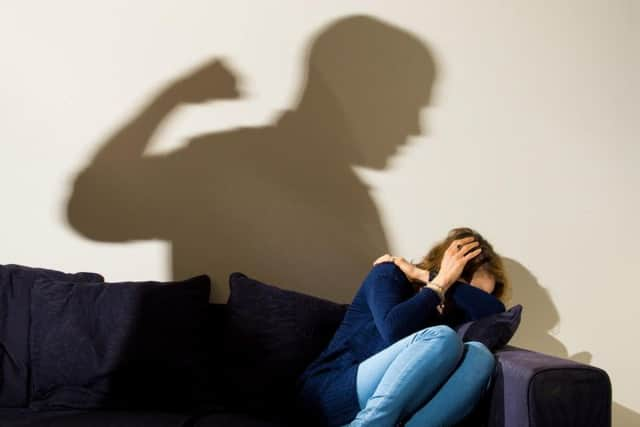Women and children forced to sleep on the streets due to domestic violence
Due to funding cuts, hundreds of women across the UK have been left with nowhere to turn after fleeing violence at home, with many sofa-surfing, staying in hostels or rough sleeping, rather than returning to their partner.
Advertisement
Hide AdAdvertisement
Hide AdNational charity Women’s Aid, which runs refuges in Bradford, Harrogate, Huddersfield, Hull, Keighley, Leeds, Sheffield and York, also found, of the 309 women it supported in the last year that were waiting for a space in a refuge, nearly one in five experienced further abuse from their perpetrator while waiting.


The charity called for the government to provide specialist bed spaces.
Adina Claire, acting co-chief executive of Women’s Aid, said: “It’s scandalous that, in 2019, women fleeing domestic abuse still face the terrifying prospect of either returning to their perpetrator or facing homelessness. We are facing a chronic shortage of bed spaces in specialist refuge services, and this is causing unimaginable suffering for women at a time when they are most in need of support.
“Survivors fleeing domestic abuse should not have to sofa-surf. Our report tells the story of women who have endured unsafe living arrangements, overcrowding, broken friendships and further abuse while sofa-surfing. Hostels or emergency accommodation are not appropriate either – women recovering from domestic abuse need the specialist, holistic support that domestic abuse refuges provide. It goes without saying that survivors should not have to sleep rough, yet, for the third year running, we found that this is still happening, even to pregnant women and children.”
Advertisement
Hide AdAdvertisement
Hide AdShe added: “It is also crucial that the law is changed to ensure that all survivors escaping domestic abuse are automatically in ‘priority need’ for housing.”
Also in news: Brothers tell of killer father’s abusive control
The charity’s report, Nowhere to Turn, describes the insurmountable financial difficulties that survivors face when fleeing domestic abuse, with many women struggling to feed themselves and their children, and pay for the phone calls and transportation required to reach a safe place to stay.
Most survivors reported an immense negative impact on their own and their children’s wellbeing, and how this compounded the trauma they experienced from their abusers. Some survivors reported suicidal feelings linked to the stress of trying to find a safe place to stay. Of the 17 women who were interviewed in depth, two attempted to kill themselves.
Advertisement
Hide AdAdvertisement
Hide AdEthnic minority women and women who were not British citizens reported finding it even more difficult to get help.
Women’s Aid’s Annual Audit in 2019 found a shortfall of refuge bed spaces of 1,715 in England.
The report also found that 57 per cent of domestic abuse service providers were running an area of their service with no dedicated funding, and 31 per cent reported that, since 2014, they have had to make staff cuts due to reduced funding.
Advertisement
Hide AdAdvertisement
Hide AdEarlier this year Theresa May promised a landmark legal duty for councils to fund support for survivors in refuge and safe accommodation, and Women’s Aid said it strongly urged Boris Johnson to deliver on this pledge.
The 24 Hour National Domestic Violence Helpline on 0808 2000 247 (run in partnership with Refuge) and Women’s Aid’s range of online services, which include the Survivors’ Forum, help hundreds of thousands of women and children every year.
A Ministry of Housing, Communities and Local Government spokesperson said: “Domestic abuse destroys lives and has no place in our society.
“We have invested more than £55 million helping more than 47,000 survivors with a safe place to rebuild their lives since 2014 and have consulted on changing the law so councils are required to provide support and somewhere safe to stay."